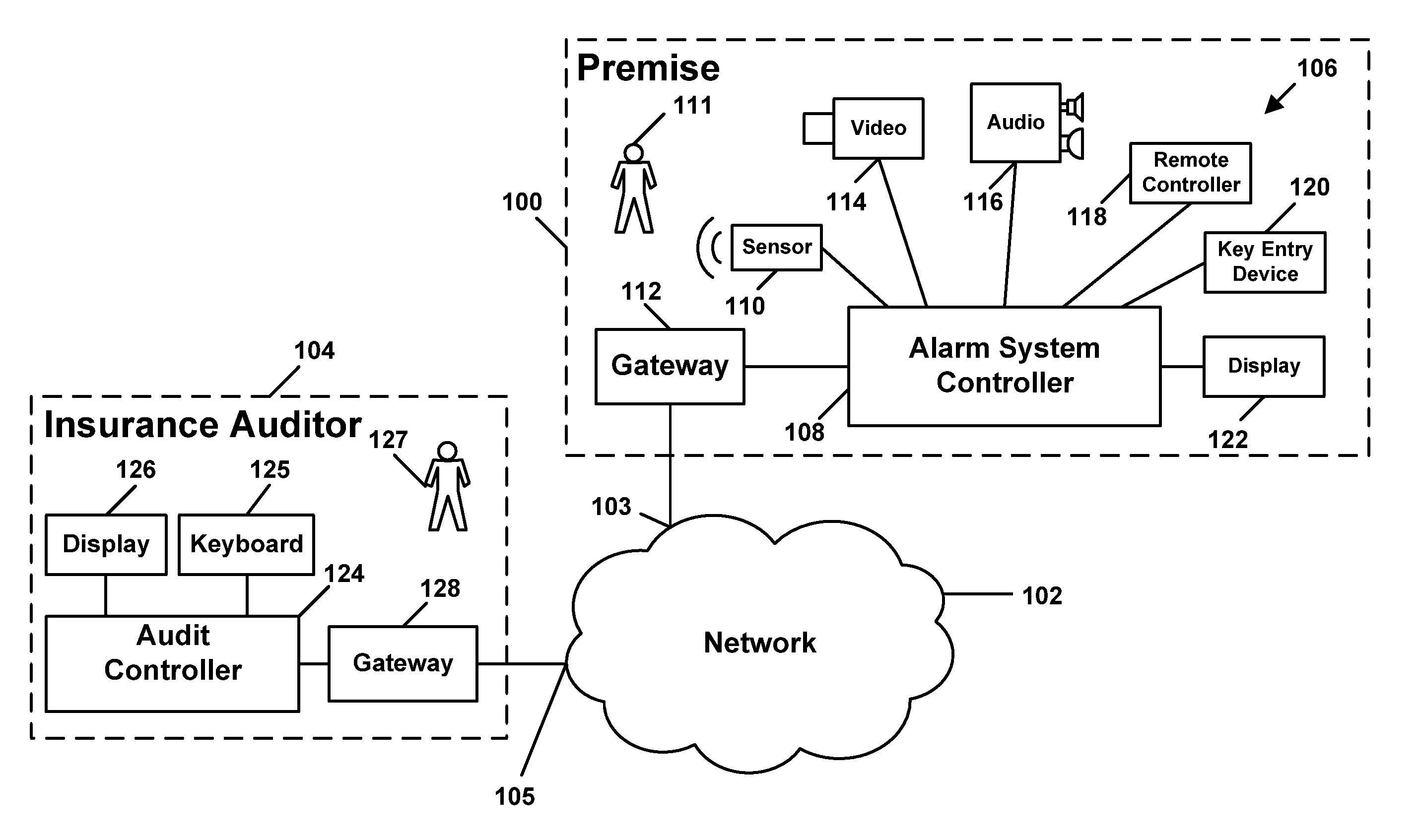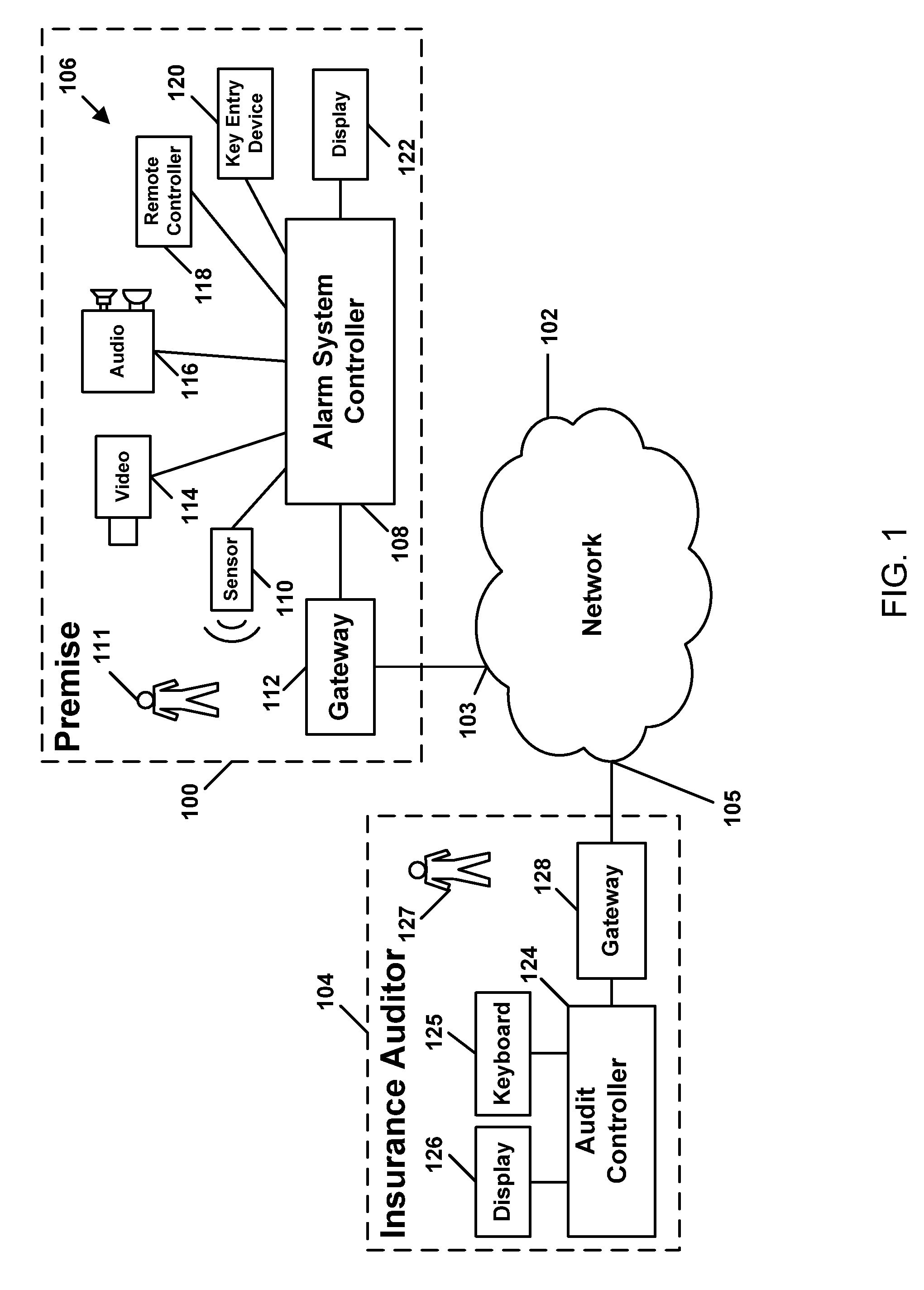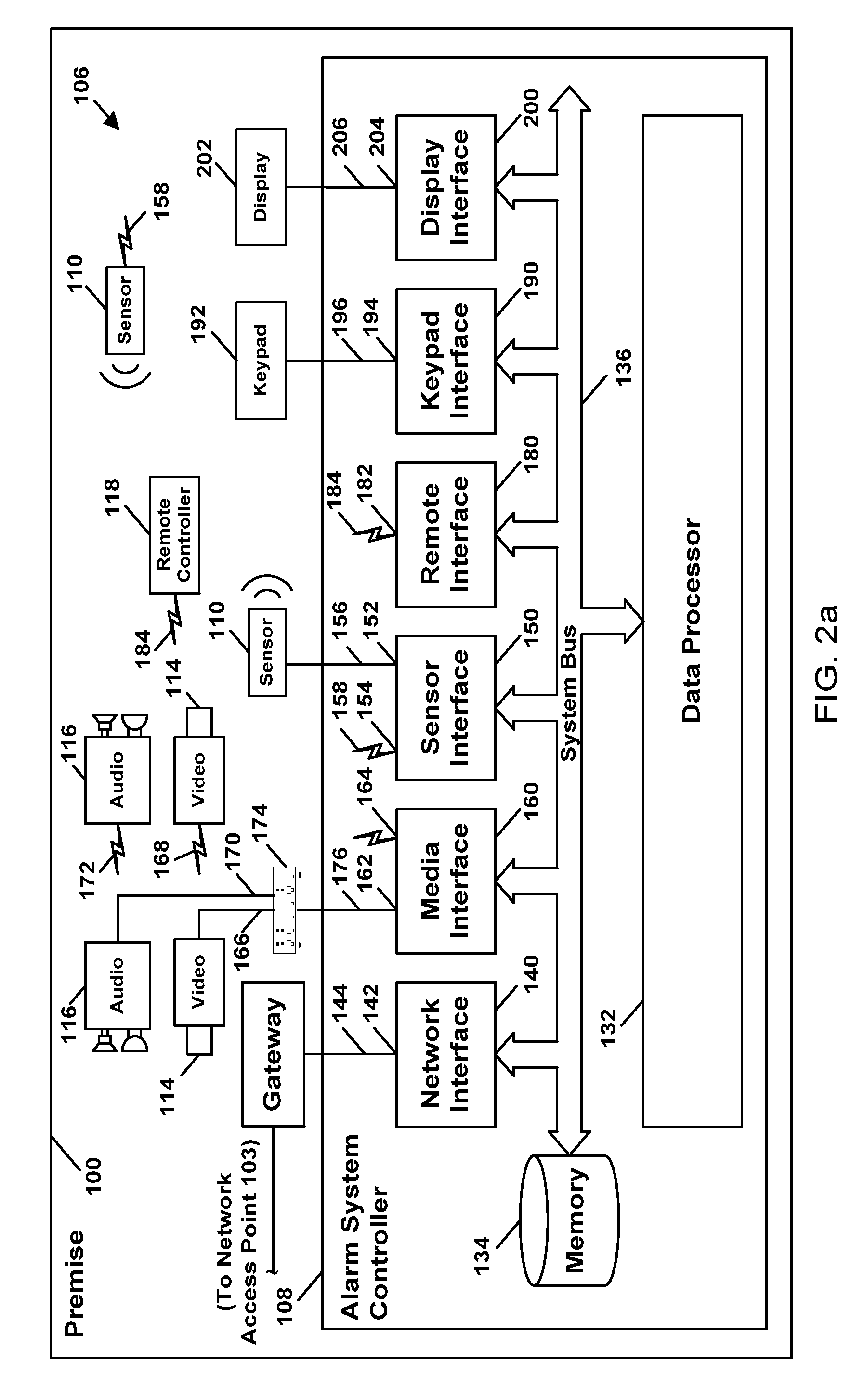Method and system for an insurance auditor to audit a premise alarm system
- Summary
- Abstract
- Description
- Claims
- Application Information
AI Technical Summary
Benefits of technology
Problems solved by technology
Method used
Image
Examples
Embodiment Construction
[0063] Referring to the drawings and first to FIG. 1, in one embodiment of the present invention there is a premise 100, a network 102 and an insurance auditor 104. The premise 100 has a premise alarm system indicated generally by reference numeral 106 which comprises an alarm system controller 108, at least one sensor 110, a gateway 112, one or more video cameras 114, one or more audio devices 116, a remote controller 118, a key entry device 120 and a display 122 in this example. In other examples the premise alarm system can comprise indoor and outdoor motion lights, indoor and outdoor sirens and indoor water sprinklers. The premise alarm system 106 detects alarm events in and around the premise 100, such as intrusion, fire or gas leaks, and raises an alarm by notifying one or more entities, such as people or other premise alarm systems.
[0064] The sensor 110 can be any conventional sensor used in burglar and safety type alarm systems, for example, without limitation, a PIR sensor...
PUM
 Login to View More
Login to View More Abstract
Description
Claims
Application Information
 Login to View More
Login to View More - R&D
- Intellectual Property
- Life Sciences
- Materials
- Tech Scout
- Unparalleled Data Quality
- Higher Quality Content
- 60% Fewer Hallucinations
Browse by: Latest US Patents, China's latest patents, Technical Efficacy Thesaurus, Application Domain, Technology Topic, Popular Technical Reports.
© 2025 PatSnap. All rights reserved.Legal|Privacy policy|Modern Slavery Act Transparency Statement|Sitemap|About US| Contact US: help@patsnap.com



